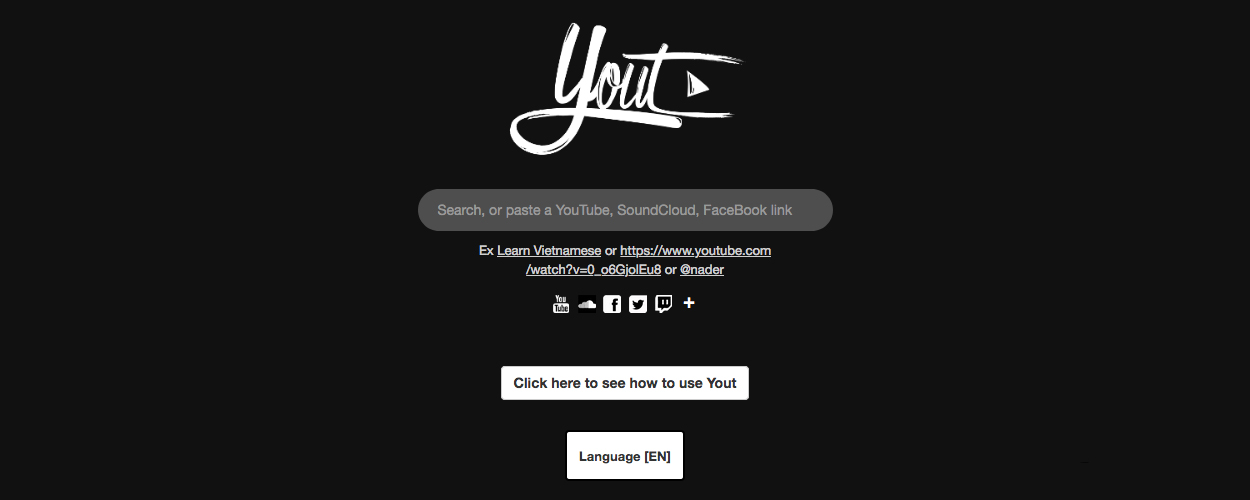This website uses cookies so that we can provide you with the best user experience possible. Cookie information is stored in your browser and performs functions such as recognising you when you return to our website and helping our team to understand which sections of the website you find most interesting and useful.
Business News Digital Labels & Publishers Legal
Copyright Alliance formally backs the record industry in ongoing legal battle with stream-ripper Yout
By Chris Cooke | Published on Tuesday 16 May 2023

The US Copyright Alliance – which brings together trade organisations from across all the copyright industries, including music, movies, TV, books, journalism, photography and software – has submitted an ‘amicus brief’ to the American courts in support of the record industry in its ongoing legal battle with stream-ripping platform Yout.
Websites that allow people to download permanent copies of temporary streams – most commonly streams on YouTube – have been a top piracy gripe of the music industry for some time now, of course. Which is why the Recording Industry Association Of America tried to get Yout de-listed by the Google search engine.
That prompted Yout to sue the RIAA based on the claim that its service was entirely legal. The stream-ripper stressed that it isn’t directly involved in any copying of copyright protected material. And – while US copyright law does prohibit the circumvention of technical protection measures that exist to stop people making copies of content without licence – it insisted that YouTube doesn’t have any such technical protection measures to circumvent.
That latter claim was central to the subsequent arguments that took place between Yout and the RIAA before the judge. Yout backed up its claim that YouTube didn’t have any technical protection measures to circumvent by pointing out that anyone can grab a download of a stream on the Google video site through a web browser if they know what they are doing.
However, the record industry countered that accessing content in that way is complicated and time-consuming, and deliberately so, in order to stop people from downloading audio or video from the YouTube platform that was only meant to be streamed. And those deliberate complications constitute the technical protection measures referenced in America’s Digital Millennium Copyright Act and now contained in Section 1201 of the US Code.
The judge hearing the case ultimately concurred with the record companies, which prompted Yout to take its case to the Second Circuit Appeals Court.
The stream-ripper has told appeal judges that its dispute with the record industry involves some “first time novel questions” and a “preponderance of disputed issue of fact”, and therefore the judge in the lower court was wrong to dismiss its lawsuit when there was a “clear need for discovery and expert testimony”.
Earlier this month the RIAA filed its response to Yout’s appeal. It stated: “The district court’s opinion was correct on all counts. It is in line with multiple courts that have found similar stream-ripping technology unlawful, in some cases (outside the United States) including Yout’s own service. The district court’s judgment should be affirmed”.
On the key debate around technical protection measures, the RIAA’s most recent filing went on: “The core questions in this case are whether YouTube employs a technological measure that effectively controls access to copyrighted works, and if so, whether Yout circumvents it. The answer to both questions is yes”.
In its new amicus brief, the Copyright Alliance backs up that position, while telling the appeal judges that if they were to interpret and implement Section 1201 in the way that Yout has suggested, all copyright owners and industries would be negatively impacted.
“In its well-reasoned order dismissing the complaint, the district court correctly held that Yout LLC’s stream-ripping service violates the anti-trafficking provisions of Section 1201”, the new filing states. “Yout’s erroneous interpretation of section 1201, if adopted, would thwart Congress’s intended purposes and would harm and undermine popular methods of disseminating the speech of copyright owners like amicus’s members”.
“As Congress envisioned when passing the Digital Millennium Copyright Act”, it goes on, “Section 1201’s prohibitions against circumvention of access controls and trafficking in circumvention tools and services play a vital role in furthering copyright’s crucial objectives”.
“Section 1201 helps prevent piracy and unauthorised access to copyrighted works by preserving the incentive for content creators and distributors like the Copyright Alliance’s wide array of members to embrace digital opportunities while continuing to create and disseminate expressive works”.
“In this way”, it adds, “the statute enables copyright owners to design innovative business models that benefit consumers by enabling lower-cost access to a more diverse variety of offerings, including subscription-based access to high-quality, digital entertainment content, on-demand viewing, cloud-based storage and sharing, and secure, authenticated video game play”.
“Indeed, the businesses of amicus’s members directly depend upon the types of technological protection measures for which Section 1201 provides protection”.
Referencing amicus briefs that have been submitted in support of Yout by the Electronic Frontier Foundation and GitHub, the Copyright Alliance filing says: “The ‘fair use’ and related ‘policy’ arguments that Yout and its amici proffer are, as detailed in [the RIAA’s] brief, inconsistent with the plain language of the statute and do nothing more than repeat well-worn, erroneous arguments that the courts consistently reject – one court as recently as last December”.
It then concludes: “As these courts recognise, the proposed limitations of Section 1201 would hinder, not further, the goal of disseminating expressive speech. The district court properly dismissed Yout’s complaint”.





